July 20, 2024
09:30 Arrival at the Polish border at Korcheva
We pass a line of about 50 cars and stop our vehicle at the traffic light at the crossing. We knock on the border officer's booth and show the list of humanitarian aid written in Polish by Koridor UA. The guard checks the document and tells us to wait for the green light. The wait on the Polish side of the border lasted about an hour, the control of documents and the contents of the packages was a simple and relatively quick formality. The wait was longer on the Ukrainian side of the border where we had to wait for a more thorough check of our passports and, above all, ask Iura from S'Egidio for the correct registration code to receive humanitarian aid from abroad, since the border guard was unable to find it in the digital archive.

11:30 Entering Ukraine at the Lviv border
After a short stop at the gas station to fill up with diesel (for about €1.10 per litre), having purchased the Ukrainian phone card and having tested first-hand the favorable exchange rate increase against the euro (March 2022: €1 = 33 UAH; April 2023: €1 = 40 UAH; July 2024: €1 = 45 UAH) we a towards the city of Lviv.
12.30 Uhr Ankunft im Gebäude der Salesianer Don Boscos
Wir stellen unsere Rucksäcke in die Zimmer, in denen wir gewohnt hätten, besprechen und organisieren unseren Missionsplan.

15:00 Visit to the Sikhiv refugee camp and meeting with Father Andri
We arrived at the Sikhiv refugee camp, the first of the partners we would meet. Before delivering the aid, we connected with the “Pastasciutta antifascista” event organized in Berlin by ANPI, thanking the donors for their contribution and managing to have Father Andri meet and greet everybody.
Once the connection ended, Father Andri guided us inside the various containers of the structure (funded mainly by the Polish government and UK AID, inaugurated over a year ago) where almost 1000 refugees now live, mainly from eastern Ukraine, almost reaching the limit of its maximum capacity.
There are around 250 children and for them there is an excellent offer of educational and recreational workshops organized by art teachers - they have got so many offers that they declined ours. The corridors of the containers were covered with drawings made by the children. Given the closure of schools on June 30th, among the activities provided to children and the elderly there are also the camps held in the Transcarpathian Oblast, a mountainous area in the south-west of Ukraine: an excellent way to escape the extreme temperatures reached in the containers, especially on the upper floor where the sun strikes directly, given that the entire structure is not equipped with air conditioning.
Until March 2024, the individual economic assistance program for internally displaced persons (about €40 per month per person) was drastically reduced in favor of military spending, forcing many people to look for work. The glass half full in this story is represented by the fact that integration became faster for the affected people, favoring a more harmonious coexistence between the displaced and the rest of the neighborhood inhabitants. Similarly, thanks to the children and young people who started attending schools around the Sikhiv refugee camp, the students in Lviv understood their situation better, thus leading to a quicker inclusion.

Last but not least, we must mention the topic of war fatigue. When asked explicitly whether the Ukrainian people were ready to end the war immediately by giving up the territories currently under Russian control (Crimea and Donbass), Don Andri answered: “People are tired, we want the war to end immediately, but we are waiting for a solution that is fair to us, for the stolen territories to return to Ukraine. What Russia did by uniting us through this war, we Ukrainians have been trying to do for the last 150 years”.
We concluded the visit of the facility and delivered the baby diapers brought from Germany by asking Don Andri about the most urgent needs of the people in the refugee camp and about the most suitable supermarket where we could purchase the items. We reached the nearest commercial area to buy large quantities of buckwheat: rice and adult diapers (the Epicenter and Auchan hypermarkets) that we delivered immediately afterwards. We leave the Sikihv camp with great difficulty because a large group of children, after helping us unload the aid, occupy the seats and the trunk of our car.
Upon returning to the Salesians of Don Bosco facility, we meet the Mediterranea Bologna Ground Crew on a mission to Lviv with Music&Resilience with whom we exchange our experiences.


July 21, 2024
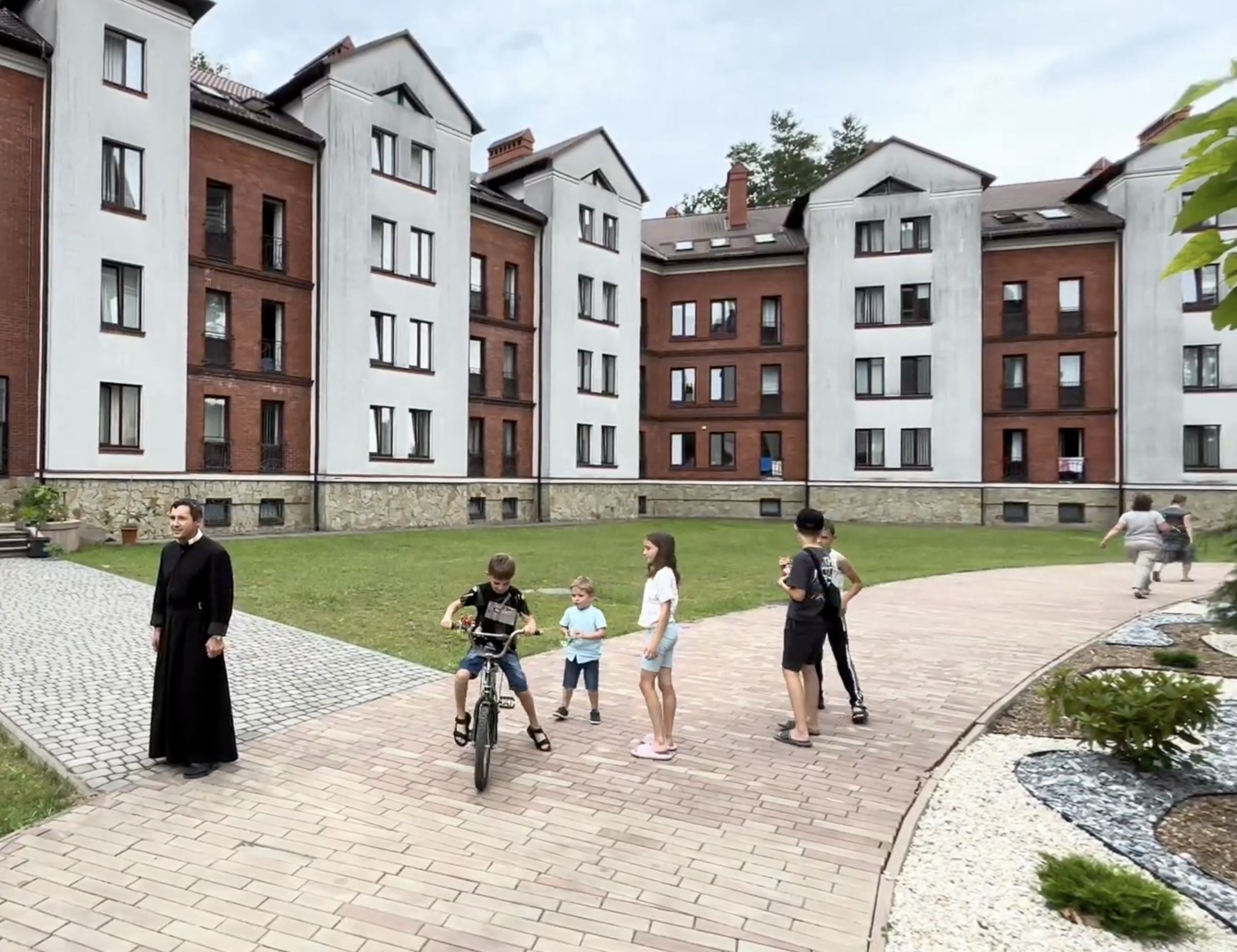
13:00 Brukovici Monastery and meeting with Father Francesco
Before reaching the monastery located in the northwest outskirts of the city, we contact the new spokesperson, Father Francesco (who replaces Father Pantaleimon), to understand what the current needs are.
When we arrive, Father Francesco has just finished celebrating mass and invites us for Sunday lunch during which he updates us on the situation of the now only 90 refugees left. Only a year ago, there were over 220: those who could, especially the young, joined their families abroad. On that precise morning, a family was celebrating their departure from the monastery with colored balloons attached to the entrance gate. The rents of the many empty rooms represent one of the ways in which the monastery finances itself.
We ask Father Francis what the state of coexistence is between the Ukrainians of the East and those of the West: "Sometimes it is difficult, but here we are used to being all together and this also applies to faith. Ours is a Greek Catholic Church, but Orthodox also come here to pray". Shortly after delivering the aid, a mini procession to the rhythm of music played by a guitar leading the line of people reminded us that "God loves us all" and wished us a good Sunday.
16:30 Phone call with Vendi (Koridor UA)
Back to the city, we are contacted by Vendi from our partner Koridor UA who informs us of the latest details regarding our upcoming departure for Kherson. For security reasons, considering its location only a few km away from the area occupied by the Russian army, in January 2024 the regional administration of Kherson imposed a new registration procedure mandatory for all people and/or humanitarian associations entering the Oblast.
Vendi tells us that Koridor UA already has 5 bulletproof vests and helmets ready for outdoor work sessions; however, it will not be necessary to wear them inside the children's centers since the educational activities take place in the basement of a residential building and the windows are safe as they are glass-free and protected by sandbags.
The registration form with our data must be signed by hand and sent back the same evening. For this reason we head towards the nearest internet café whose owner insists on not making us pay, specifying that "this is my way of thanking you for helping my country".
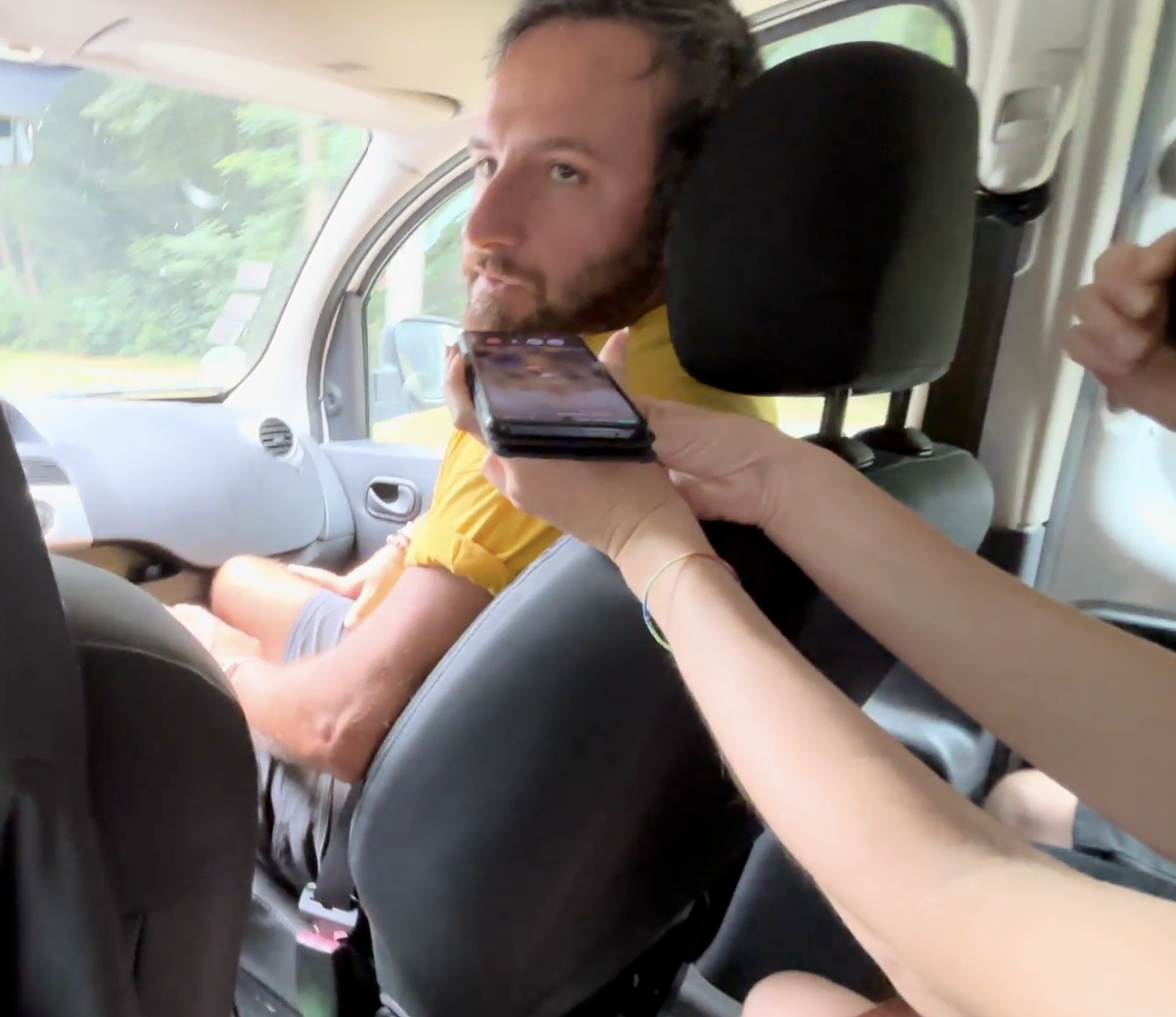
July 22, 2024
1:00 PM Sant'Egidio and meeting with Iura
When we arrive, we find the headquarters of Sant'Egidio already in preparation with stalls and volunteers (mostly students) ready for the day of package distribution to the internally displaced persons (IDPs).
Despite this, Iura welcomes us with great joy and his typical verve even though he is visibly tired and busy. Immediately after the delivery of power banks and USB lights, he invites us to sit with him and his assistant Ivana, who is also visibly shaken and worried because her son is at the front: every news from the front that appears in the newspapers may be fatal...
Iura is very worried not only about the state of the war - "a freeze in the war is a tragedy for everyone", but also because aid has dropped drastically compared to when we met a year ago. He is referring to both types of aid: humanitarian and military.
It's all very understandable for him. More than two and a half years have passed since Russia's invasion of Ukraine, there is no major military news to capture the attention of the media or the Western political classes who must vote in favor of aid packages, there are also the shocking daily images that arrive from the West Bank… Iura also complains about an excessive disproportion between military aid and humanitarian aid: "Thank you Germany for the Taurus, we need it, but how many families could live carelessly for a year in Ukraine with the equivalent of one Taurus missile?".
Like Father Andri, Iura also tells us about the alarming and growing economic problems throughout the country. While other Ukrainian cities have emptied (about 40% less population according to a rough estimate), in Lviv Oblast there are over 300.000 IDPs: the city is overcrowded and is plagued by rising rents, speculation, inflation and lack of work.
Iura informs us of his upcoming institutional duties: the funeral of Iryna Farion, a linguist and a prominent nationalist politician of the far-right party Svoboda (she was a member of parliament at the time of the assassination), as well as a real point of reference in Lviv. Farion was known for defending the Ukrainian language and for having publicly expressed herself violently against Russian-speaking Ukrainians, especially representatives of institutions and the military.
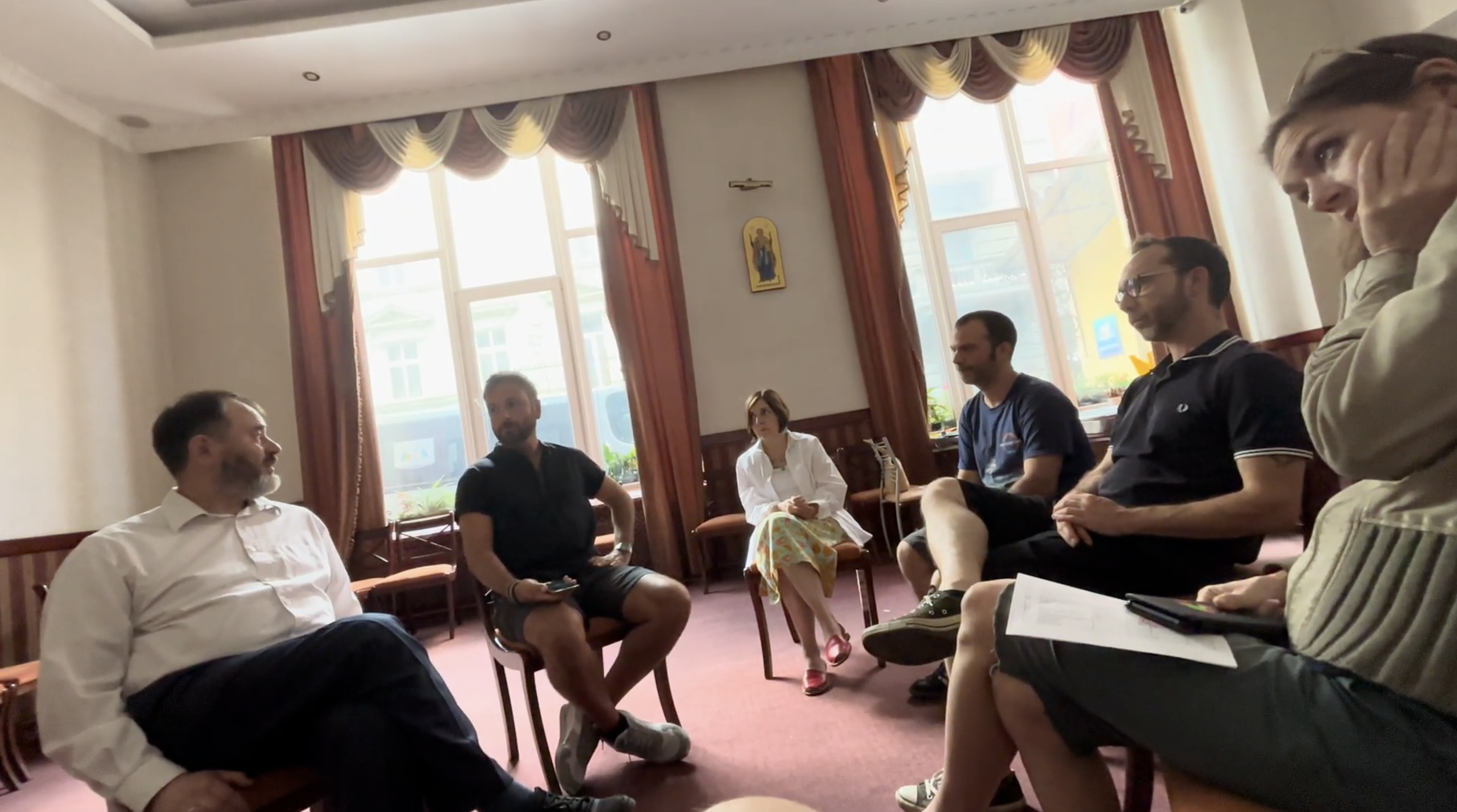
15:00 Funeral of Irina Farion
Thousands of mourners were gathered in front of the Jesuit Church of Peter and Paul (a few meters away from the headquarters of St. Egidio), many were holding the red and black flags of the UPA (Ukrainian Insurgent Army of Stepan Bandera).
16:30 Return to Sant'Egidio and distribution of packages to IDPs
When we returned, the distribution of humanitarian packages had already begun. It all happens in an organized manner: people can register both physically and online and receive a specific arrival time. Among them there is a soldier who survived the Russian siege of the Azovstal steel plant in Mariupol and over a year and a half of Russian detention during which he lost almost 20 kg. It was during the historic prisoner exchange between Russia and Ukraine at the end of June that he was freed.
It is increasingly difficult to find discharged soldiers returning from the front or adult males: the huge number of losses among the Ukrainians and the political choices of the Government are causing great discontent and protests. The day before we had witnessed a procession of women and children whose banners were not entirely clear to us at first: “Services aren’t slaves. Support the law about the terms of services”. Iura explains that they are wives and children demonstrating to bring their husbands and fathers home. After a set number of days at the front, you are legally entitled to rest and that this is systematically and abusively ignored by the Army, which is in constant need of men ready to fight. Equally illegal (and a cause of great anxiety for all men not yet at the front) is the so-called phenomenon of “debussization”: the Army’s “conscription squads” are tasked with forcibly recruiting adult Ukrainian males capable of fighting.
A new law, introduced in May, requires every man between the ages of 25 and 60 to register their details in an electronic database by a set date, after which they must pay a hefty fine that increases weekly. Conscript officers are on the hunt for those who avoid the register, pushing more and more men who do not want to serve into hiding. Very few categories are exempt: fathers with more than three children, “system relevant people” necessary for carrying out social and public functions. The term “debussization” refers to the fact that the military also carries out checks on public transport, forcibly removing men who refuse to follow them voluntarily, even out of buses.
We inform Iura of our intention to extend the mission to Mykolaiv and tell him about the bombarded school in Zelenj Haj. Iura not only encourages us to literally adopt the children of the village, but gives us over 500 “Kinder Surprise Eggs” to deliver once we arrive at our destination.
July 23, 2024
08:00 Departure towards Mykolayiv
We pass through Ternopil, Chmelnytzki, Vinitsa and when we arrive in Uman we do not take the road towards Odessa (south) due to the condition of the road surface, but we continue towards Chirovograd (further east) where we finally turn south towards Mykolaiv. Along the almost 1000 km we were able to see regular traffic (both cars and trucks), the asphalt is in good condition and we did not encounter any checkpoints neither along the road nor at the entrances to the various cities.
22:00 Arrival Mykolayiv
Upon our arrival we realize that the city is almost completely dark, except for a few lights along the main roads, traffic lights and a casino. The owner of the house we rented greets us at the gate of the courtyard and before going up to our apartment he points out the bunker. Less than an hour later the alarm sounds, we rush down and during our wait we realize that we are the only ones in the rooms furnished with chairs and mattresses. We will remain the only ones until the alarm stops.
July 24, 2024
10:00 Meeting with Koridor UA
We have an appointment with Vendi and Petr from Koridor UA at their warehouse - shared with another association “Less words, more action” whose manager is Oleg - located on the outskirts of Mykolayiv. Koridor UA has been active in Ukraine since the beginning of the war and as the war front stabilized, they moved their intervention further and further east. From an emergency type of intervention they gradually moved to initiatives related to reconstruction. This is also visible from the type of material stored in the warehouse. Not only food and hygiene products, but also doors, windows, light switches, toilet bowls, skirting boards etc.
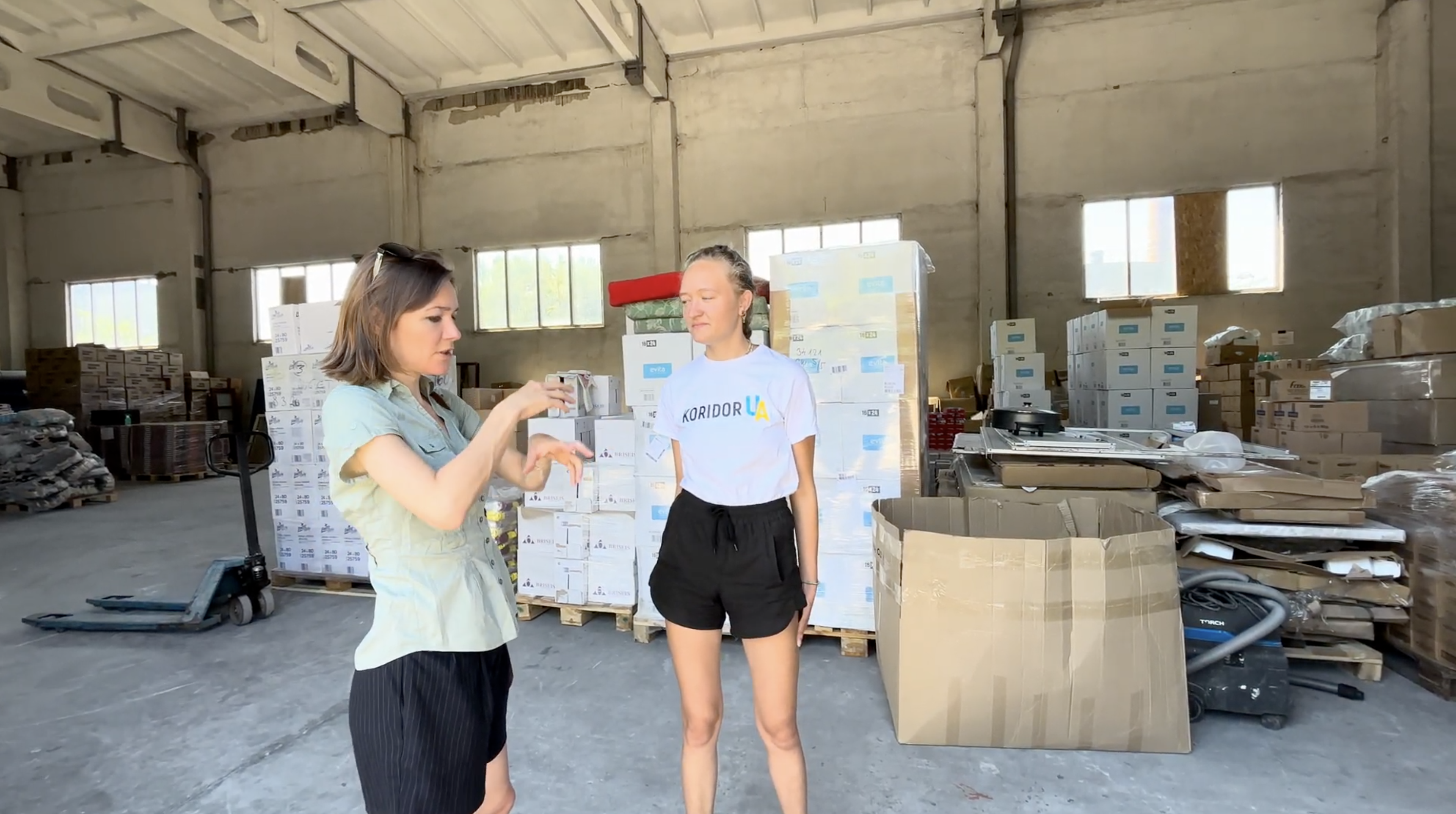
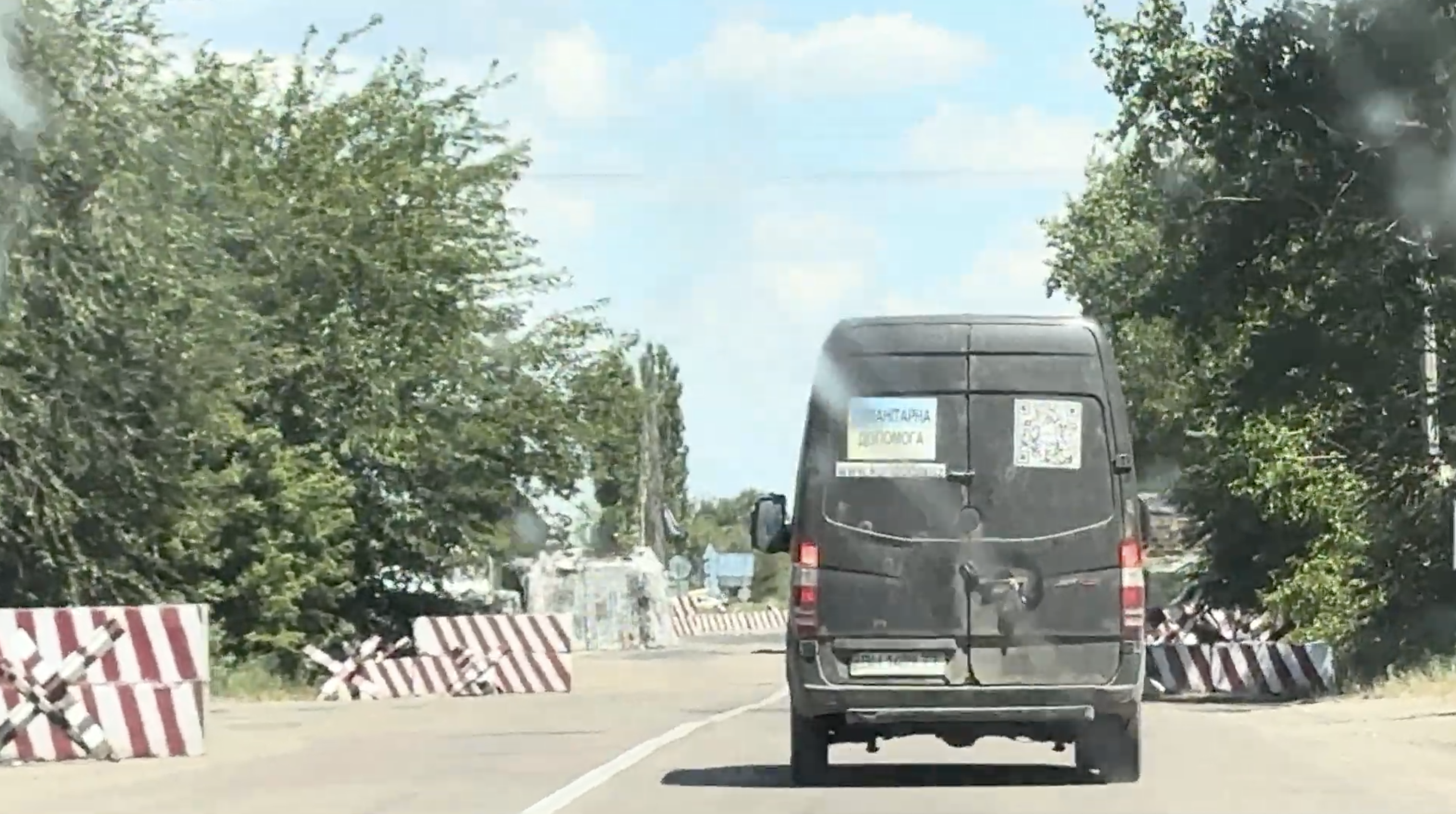
12:30 Departure for Kherson
Along the road between Mykolaiv and Kherson it is impossible not to notice the traces of the Russian occupation that took place from March to November 2022: on the sides of the road, destroyed houses and structures alternate with empty land marked by small white flags indicating the areas cleared of anti-personnel mines.
At the border between the two Oblasts, armed soldiers check documents and luggage at the checkpoint, after which we stop again shortly after to put on helmets and bulletproof vests.
13:30 Arrival at the children's center in Kherson
The center is located in a basement where we deliver the school supplies that had been requested. The windows have been replaced by wooden panels and covered with sandbags. When we arrive, the children are already waiting for us: there are about fifteen of them in total, between 5 and 12 years old, all accompanied by their mothers. Also waiting for us are the center's two instructors, both from Kherson, and also the translator Katerina from "Nonviolent Peaceforce", an NGO specialized in offering local activists and volunteers logistical support and safety equipment. Outside the basement, while we were unloading the aid from the car, sounds that seemed like thunder overwhelm us. Vendi explains that they are Ukrainian and Russian artillery fire: the occupied area is less than 10 km away from us.
14:15-17:30 Artistic workshop
The second part of our mission comes to life with the realization of the workshop conceived in Berlin with 3 main purposes:
a. to use creativity as a therapeutic means able of distance children from the daily reality of war;
b. to build a basis of trust with the local population and imagine future collaborations;
c. to use the material created by the children to compose the calendar and finance our next mission.
Apart from the isolated case of a little girl, the participation was enthusiastic despite the language barrier overcome thanks to Katerina and the universality of the artistic language. At the end of the workshop, Igor, one of the coordinators of the center, approaches us and asks us to return the next day given the rarity of such activities for children, especially by non-Ukrainian associations.
The workshop was aimed at creating a relaxing and stimulating environment that would encourage the imagination and creativity already immensely present in children, so that they tell us about their emotions, their hopes, their dreams.
In the wonderful variety of expressions of the little ones, from whom we were the ones who learned the most, a bond with their city, their home and their country in danger often emerged.
These are often children belonging to families who fled and returned only after Kherson was liberated.... their need to live there was stronger. The flag of Ukraine was present in various drawings. We saw the desire for normality, naturalness and spontaneity that every child deserves and sometimes also the desire to find their family united, given that these children often have their father or other male relatives enrolled in the army.
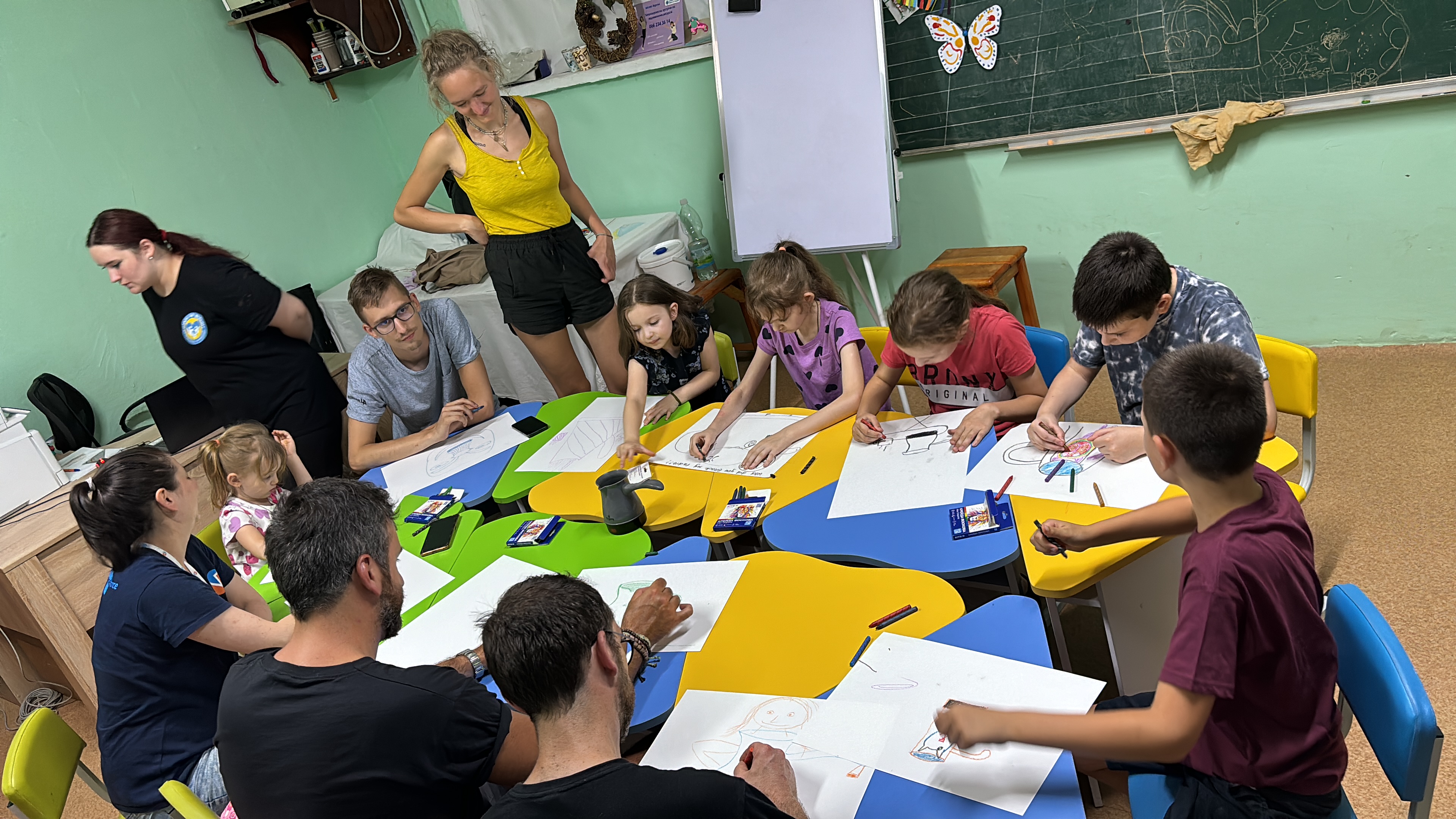
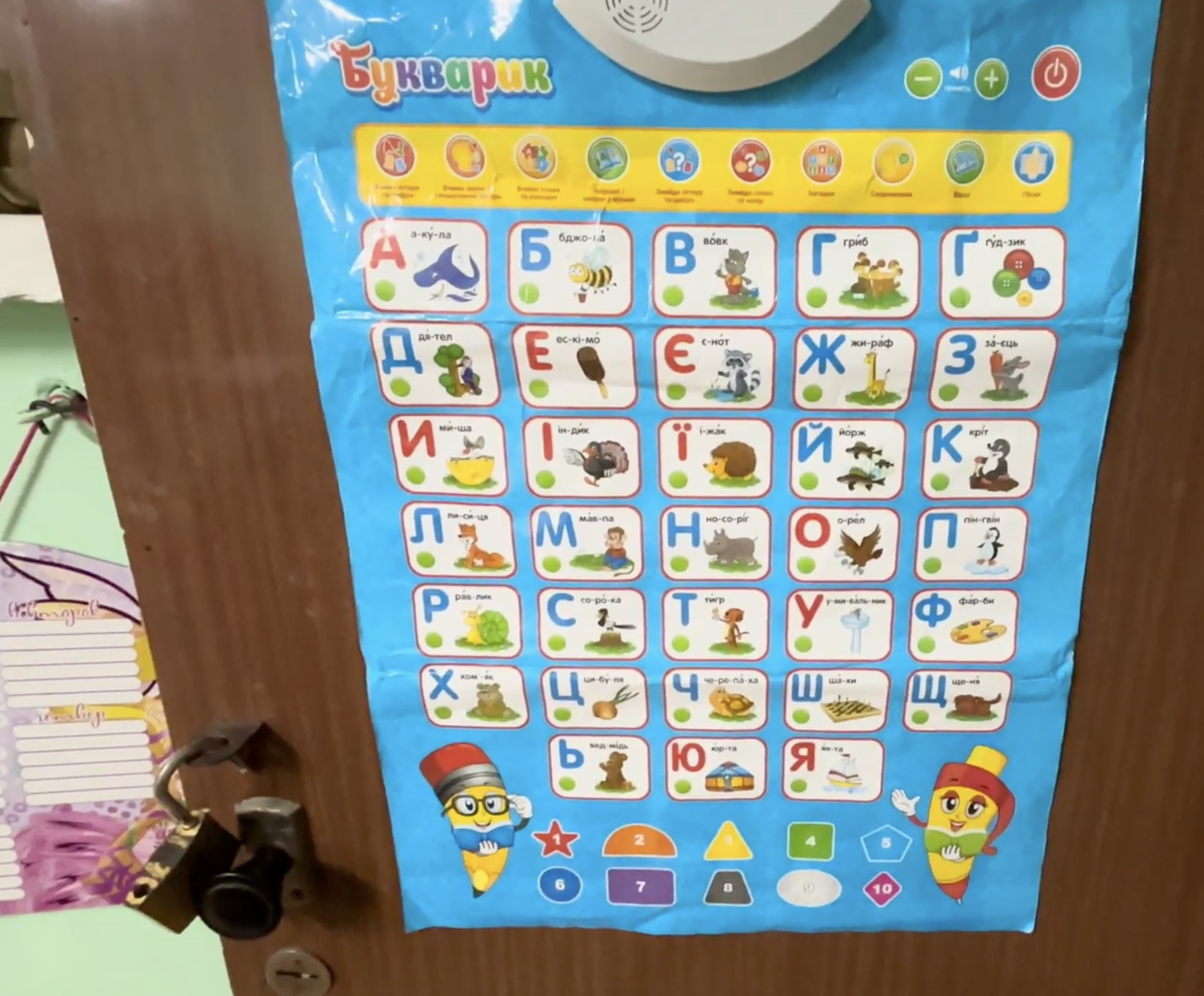
July 25, 2024
11:00 Support for Koridor UA in the distribution of humanitarian aid in Kherson
We accompany Vendi and Petr to a school that has become, since the outbreak of the war, one of the regional distribution centers of Kherson, managed by a partner organization. Here too, the aid is aimed at reconstruction rather than at covering emergencies. Tatiana, the center manager, guides us inside the structure. As we walk through the rooms full of relief goods, she also shows us some rooms where the work in progress indicates their future use: a brand new oven and mixer for future bakers, pastry chefs and chefs who will also be able to train professionally here… or ropes, punching bags and mats for athletes who need sports equipment to be able to train.
14:00-16:30 Arrival at the children's center in Kherson
Upon our arrival we immediately realize the need for a more constant presence especially for the children, although not only. The broad smiles of the parents at the sight of us and the hugs of the children are the most evident proof of this. The confidence acquired the previous day allows us to extend the artistic activities and get to know the children in a more personal and individual way. At the end of the workshop, all the children received the Kinder eggs donated to us by Iura.
16:45 Interview with Igor
Igor could be called to fight at any moment, even if he prefers to continue helping the inhabitants of Kherson as he has done since the beginning of the war. He collaborates with various foreign associations, brings humanitarian aid to remote villages where in some cases only elderly people live and also organizes evacuations: it literally involves entering with an (unarmored) vehicle between the fires of the two armies, loading elderly or injured people who are unable to move independently and taking them back to safer areas. In this context, the term security does not clearly separate itself from its opposite, but extends in small degrees at a time. Even just 1 km can make a difference. Igor is strong-willed and does not seem to give up in the face of the daily difficulties, he accepts them for what they are. But he does not accept the corruption at the top of the national government and ministries, the mismanagement of the city of Kherson and the fact that international aid stops entirely in the West of the country. For Igor, there is no peace with the Russians unless all the occupied territories, from Crimea to Donbass, are liberated.
17:15 Reconnaissance in the city of Kherson
The city is uninhabited, the streets are deserted, the administrative and municipal buildings are mostly devastated or in any case unusable, the area by the river is a “no go zone” because it literally represents the border area with the Russians, where snipers are able to strike.
July 26, 2024
13:00 Arrival at the Zeleny Haj children's center
About an hour and a half away from Mykolaiv is the village of Zeleny Haj, whose school was shattered by an air raid in April 2022, killing six people, including the school director and the mayor. During the occupation, the village of about 2,000 people was almost completely empty except for the elderly. One of the few people who remained was Oxana Gnedko, the wife of the murdered mayor, who together with other women from the village, started rebuilding it after the occupation. Thanks to her efforts, the residents of Zeleny Haj asked Oxana to become the new mayor and continue the work of her deceased husband. The reconstruction of the children's center was possible thanks to her contacts and her fundraising campaign.
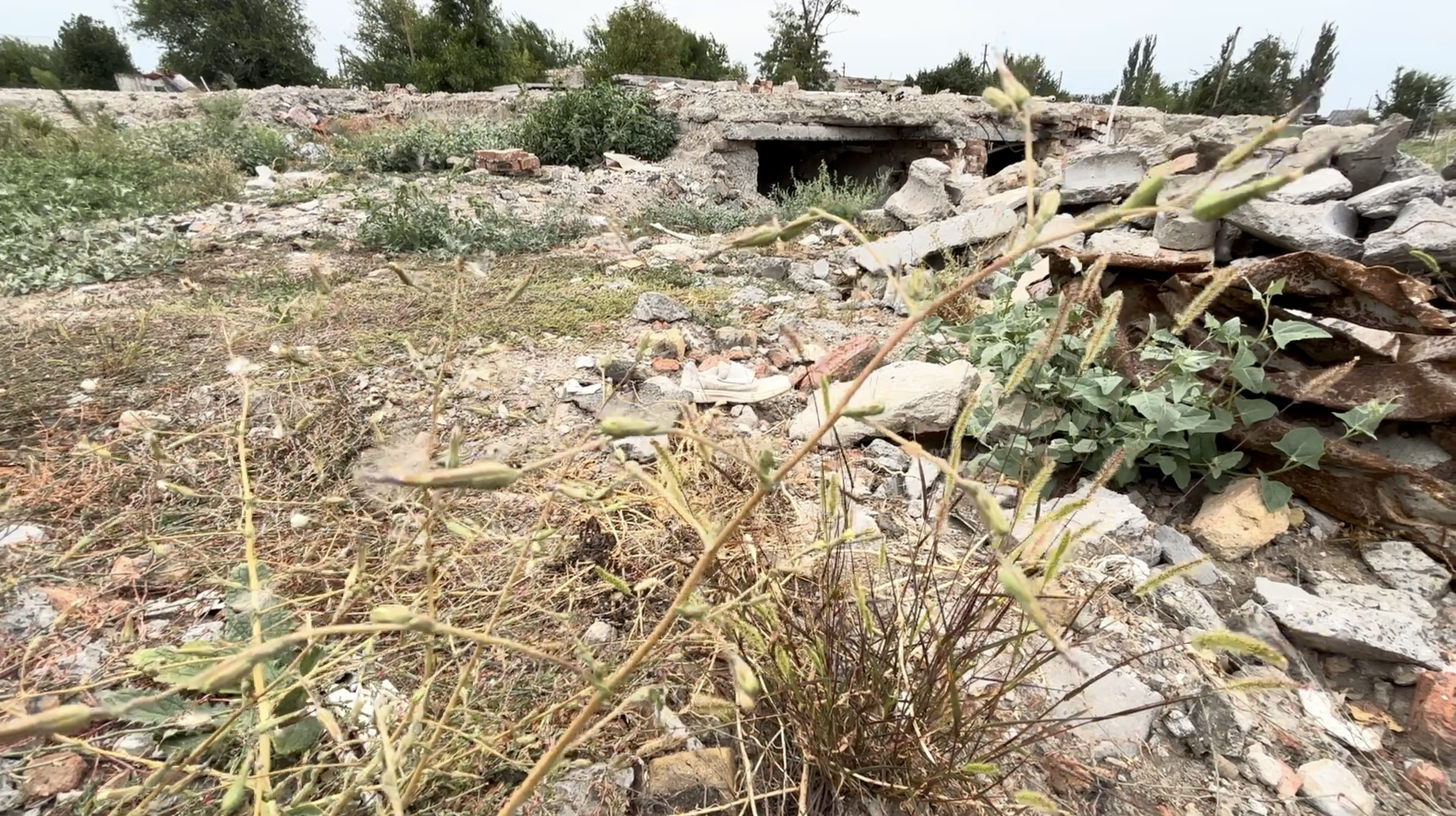
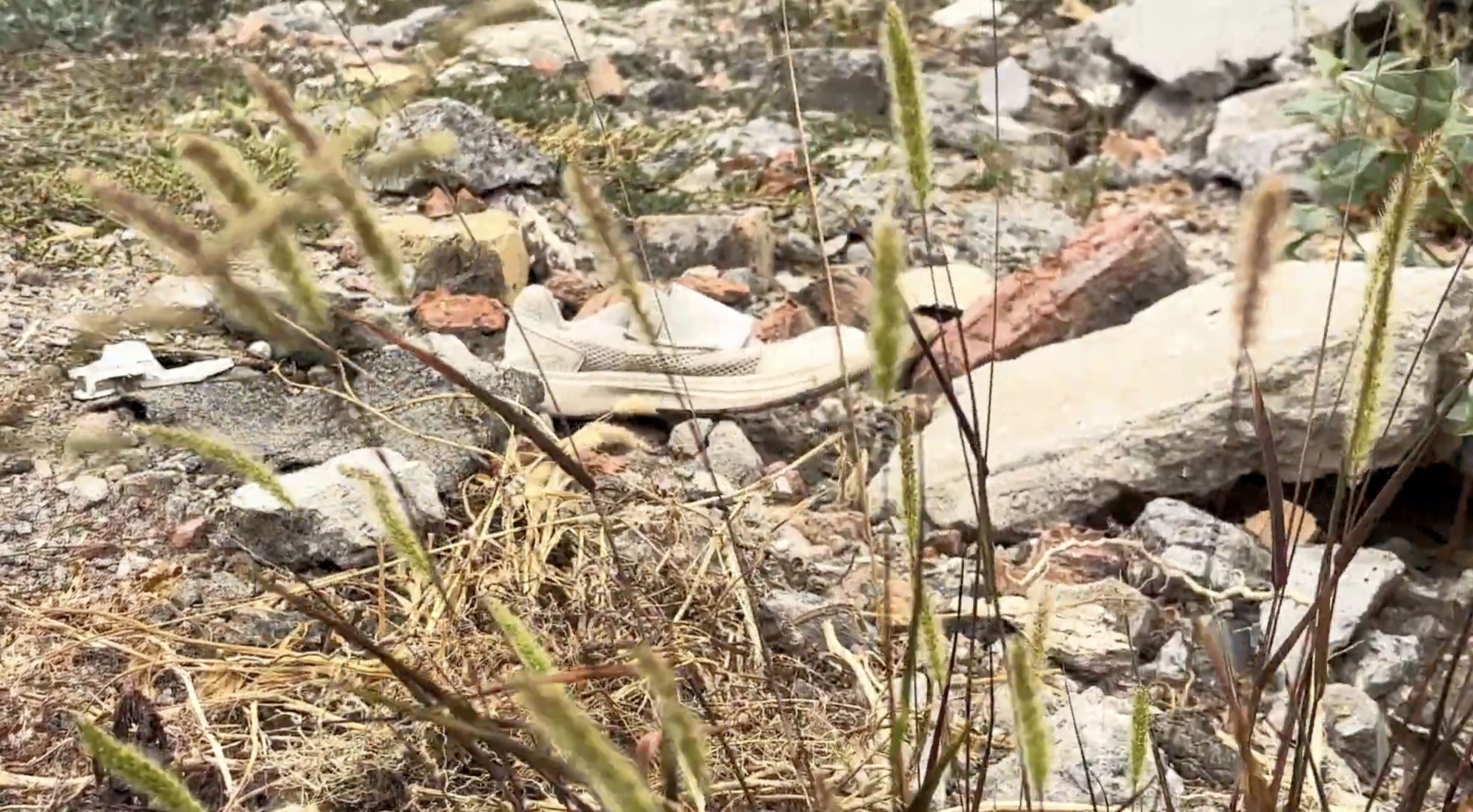
13:30-16:30 Artistic workshop
In this case too, the workshop was held in the basement of the former municipal building. The reconstruction of the basement as well as the school desks were funded by Koridor UA. More than thirty children (between 4 and 11 years old) are present at the table. It is noticeable that they are less traumatized, evidently no longer used to having to hear the noise of artillery fire every day. They are more sociable, immediately behaving in a friendly manner to us and obviously having known each other for a long time now.
However, the effects of the war cannot be considered completely absent: during the workshop the lights go out and the children naturally turn on the light of their cell phones and continue as if nothing had happened.
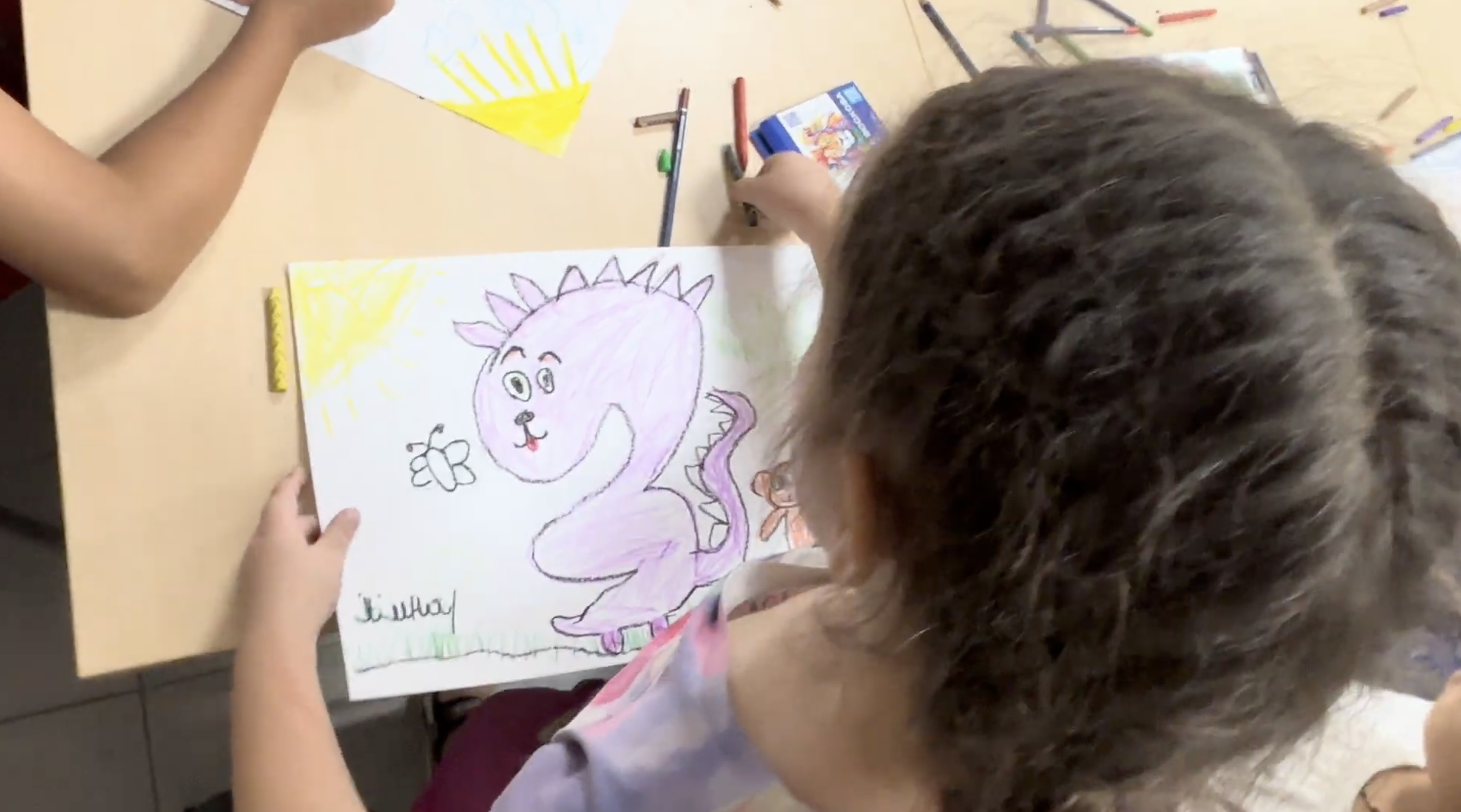
16:00-17:00 Interview with Oxana Gnedko, village reconnaissance and visiting the school ruins
Since November 2022, the village has been repopulated, you can see shattered houses, but you can also see signs of reconstruction such as solar panels donated by Electriciens Sans Frontières, drinking water filters from US AID - even if these are only initial solutions.
A few meters away from the building that now hosts children's activities, Oxana leads us through the ruins where the school used to be just over two years ago. Walking among blocks of concrete and pieces of iron causes a strong sense of uneasiness. Oxana cannot hold back her tears as she remembers those moments. The video on her cell phone shows the horrifying images of the bombing and the flames that engulfed the now wrecked structure. The mayor tells us that Zeleny Haj has always been a close-knit community - even before the war: “Here in our streets there are common boxes where people leave spontaneous donations. When national or village holidays come around we start a common fund that is a gift from all the inhabitants of Zeleny Haj”.
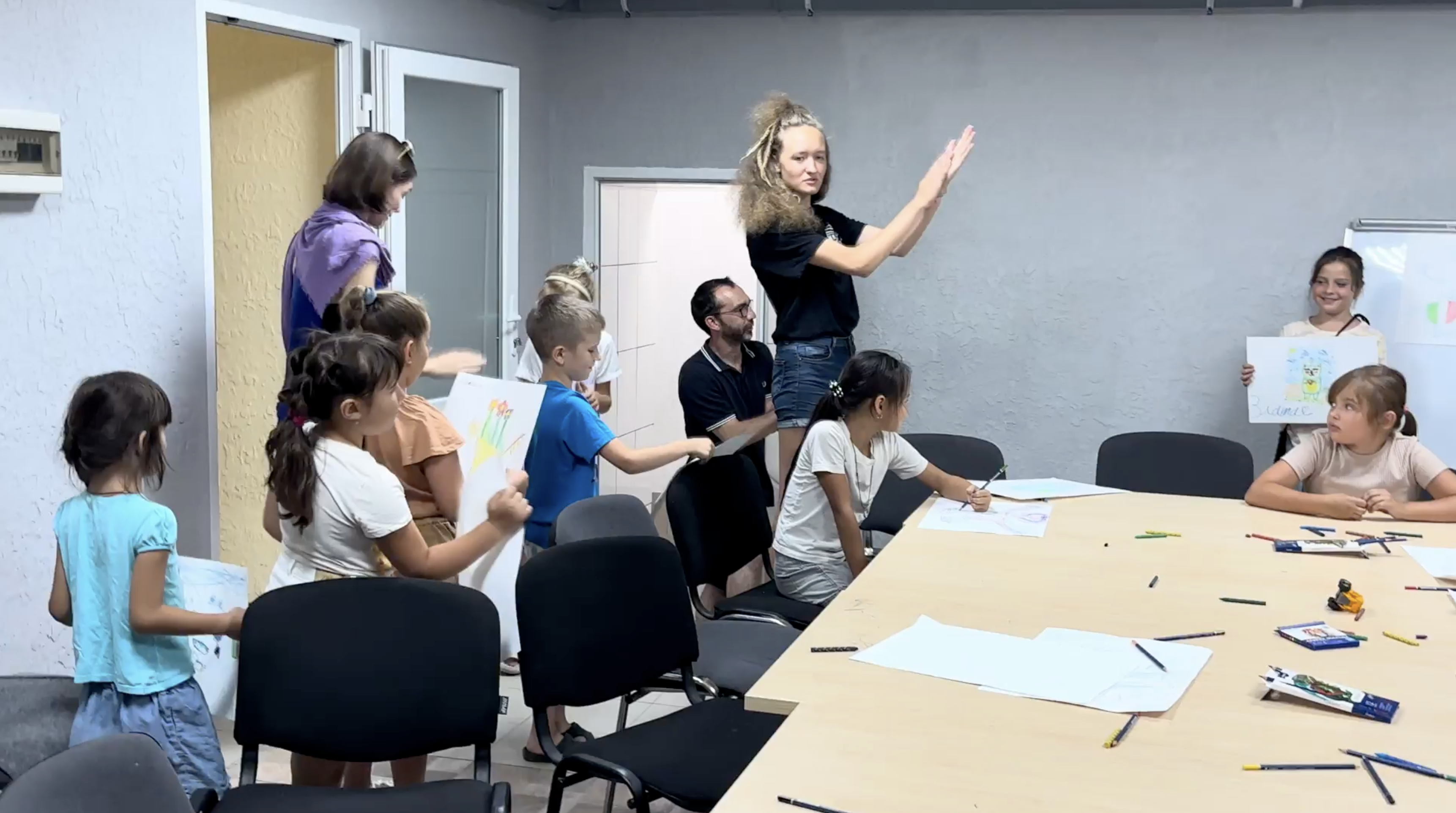
20:00 Meeting with young people
The evening before our return to Berlin, in the now dark courtyard of our apartment building in Mykolaiv our attention is captured by an open-air cinema organized by a group of residents. They are friends who have lived in the same apartment building for many years, mostly men, they all work, even if only one of them is in a “system relevant job”, so almost all of them are potentially at risk of getting drafted. We explain to them that we are a humanitarian association and they reply: “What are you doing here? We don’t need help, we have everything here. It’s not like two years ago”. We add that we had also been to Kherson in the previous days and that we had just returned from Zeleny Haj. Once again their response shows all their pride and desire to find normality again even if about 60 km away there is still fighting at the front: “Well done, in Kherson it’s needed, but not here… and not even in Zeleny Haj. In the Mykolaiv Oblast they don’t need it”.
July 27, 2024
11:00 Return to Berlin
The mission is over and a long journey back to Germany awaits us. We decide to avoid crossing Ukraine again and opt for the Moldovan border.
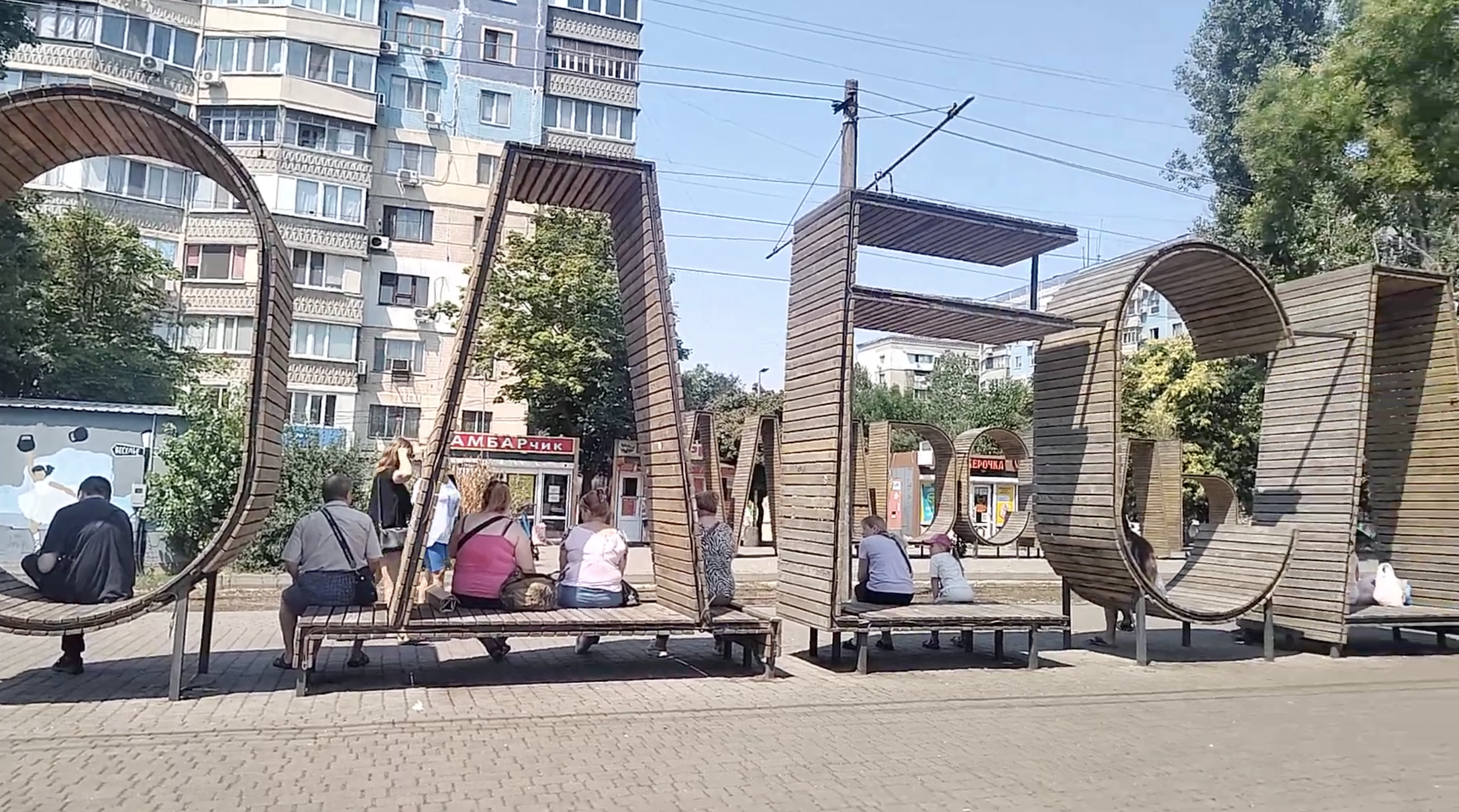
13:00-15:00 Odessa
On the return journey we decided to shortly stop in Odessa, in order to compare the city to what it was 2,5 years ago. Now it is no longer a city under siege: the checkpoints, the soldiers on the streets, the sandbags and the anti-panzers have disappeared. The humanitarian aid collection hub has returned to being a school, just like the Odessa Food Market, that has also returned to its original functions. Many shops, bars and restaurants near the Opera have been rebuilt or have undergone significant restoration work. The centre, which we had known as a beautiful ghost town, is now teeming with local and regional tourists. The streets are very busy and the atmosphere of the city gives off sensations similar to those experienced in Lviv.
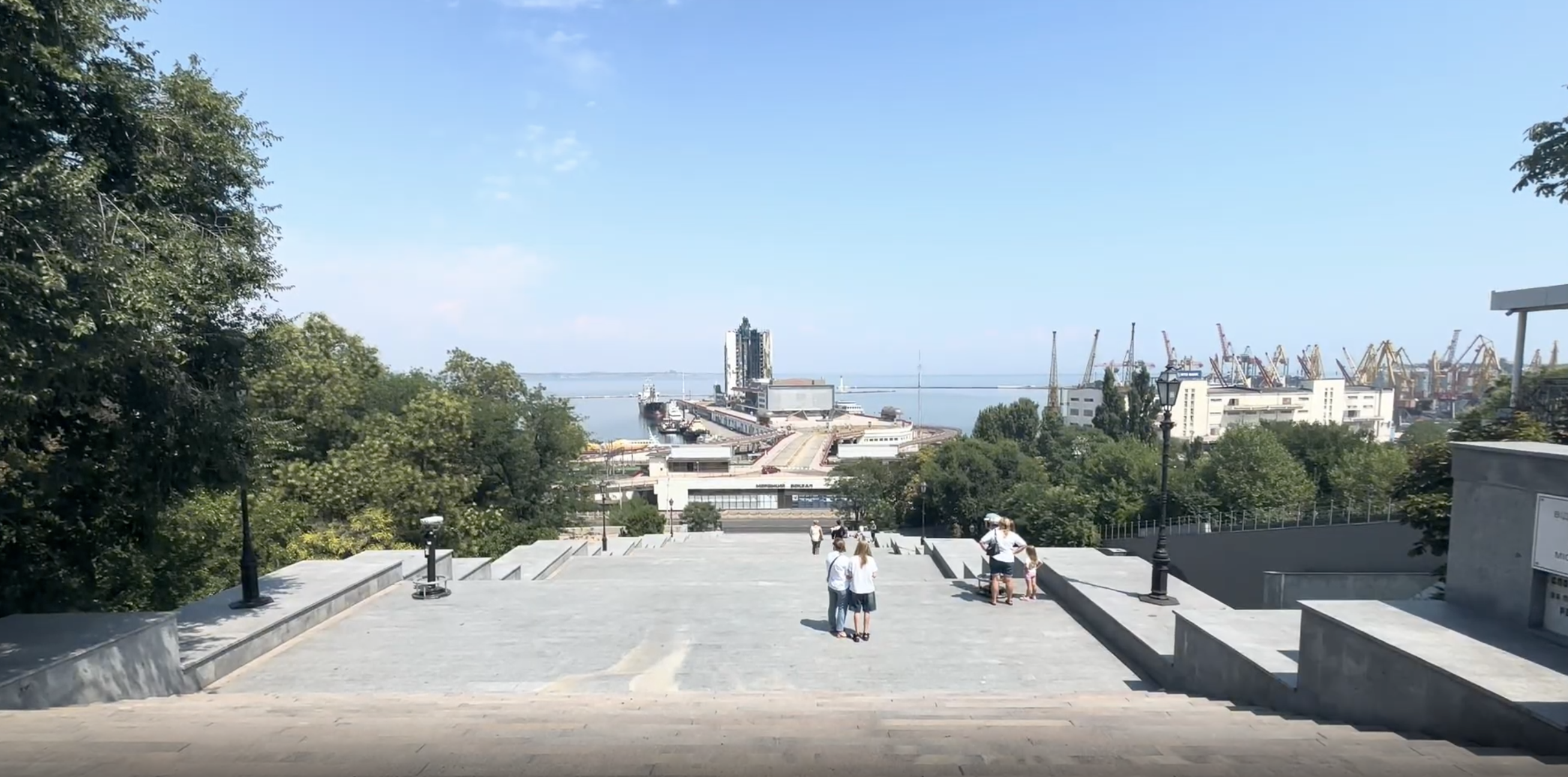
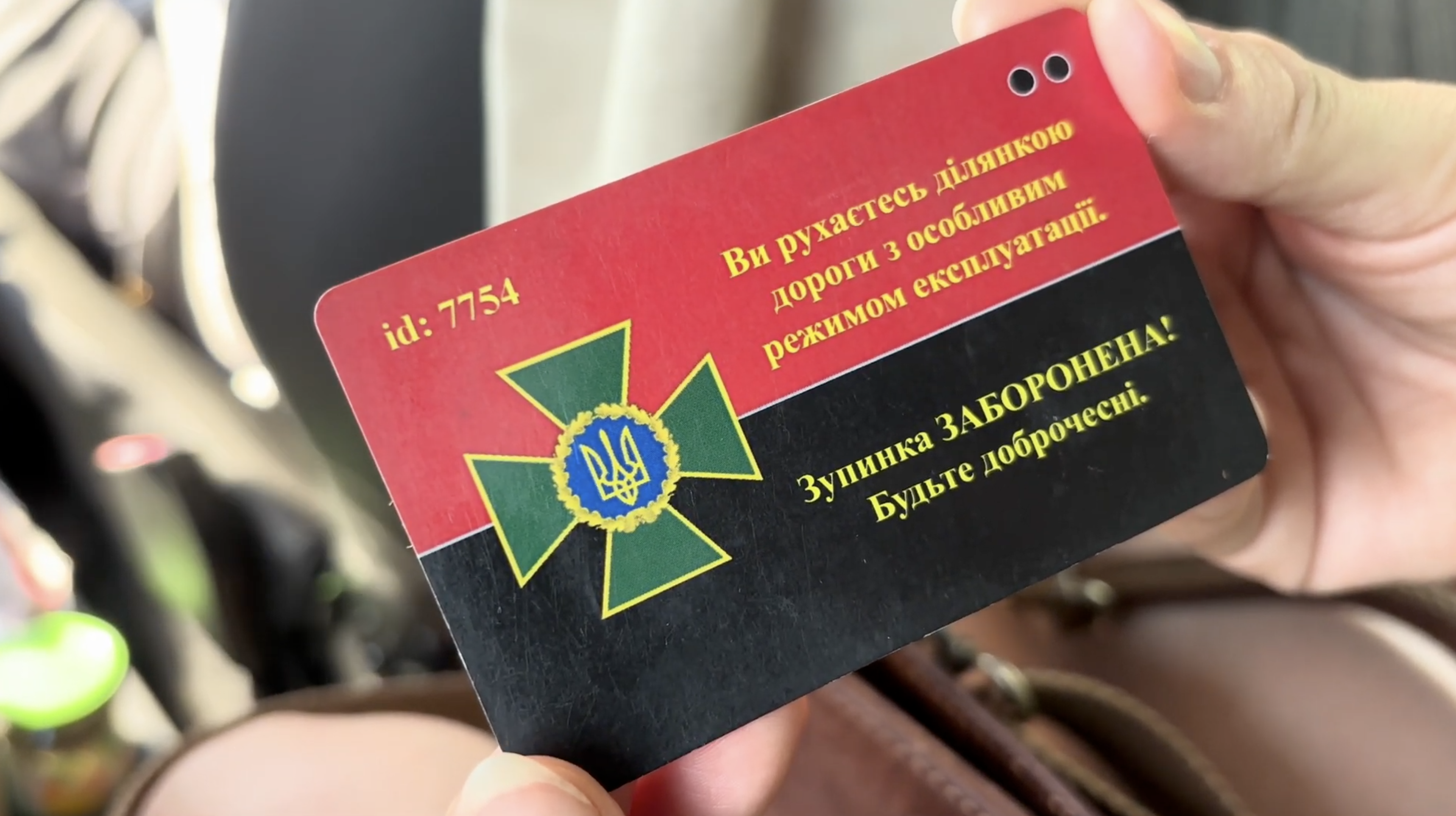
16:30-19:00 Ukrainian-Moldavian border in Tudora
The line of about 40 cars waiting at the border could not be overcome this time. The soldier on duty did not accept any arguments. The document check was inexplicably interminable.
23:30 Moldovan-Romanian border in Sculeni
The crossing of the last non-EU country was very fast. Apparently being a German association and having a German activist on board represented a sufficient form of guarantee for the border officer.
July 28, 2024
Crossing Romania, Hungary, Slovakia, Czech Republic and arrival in Germany.
